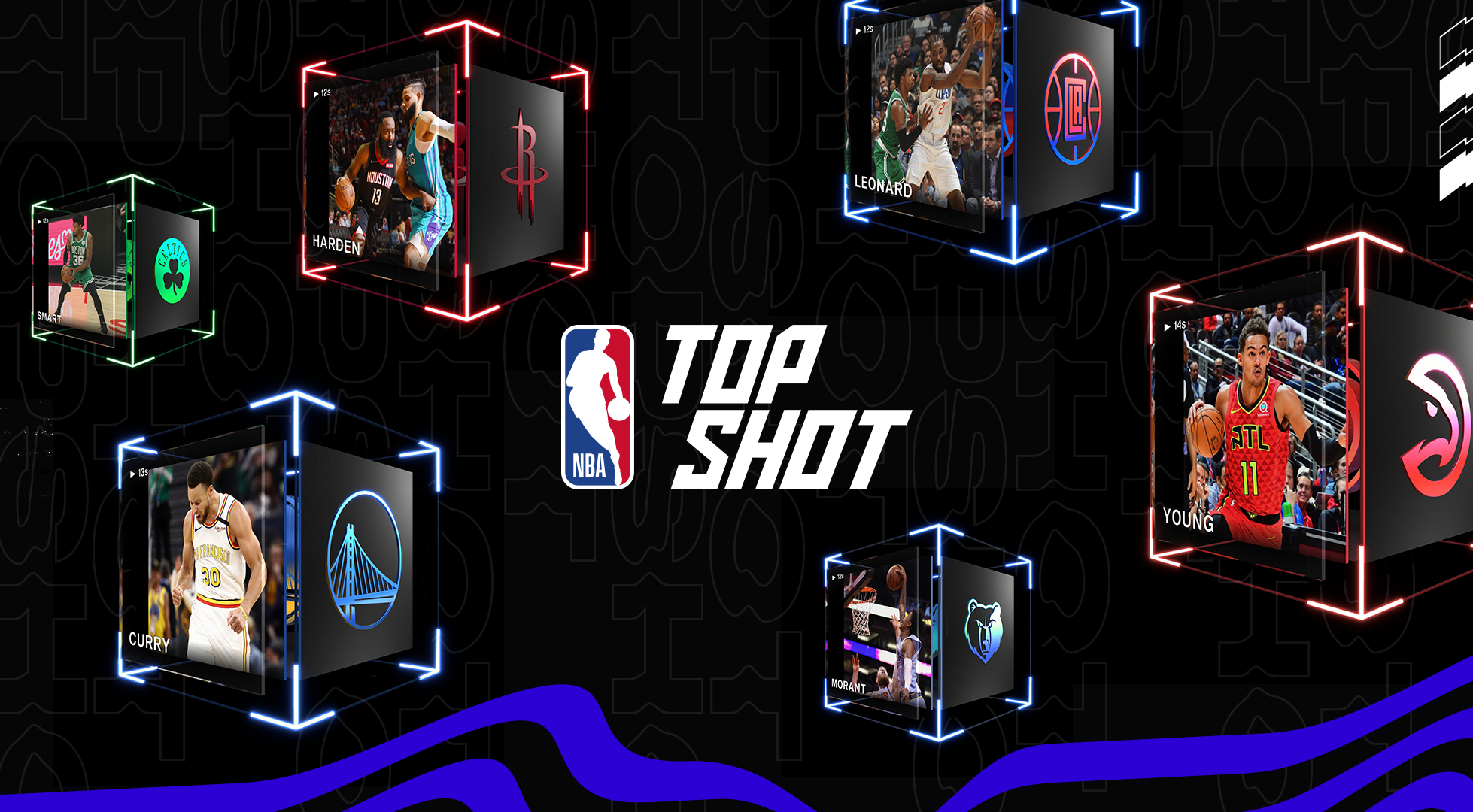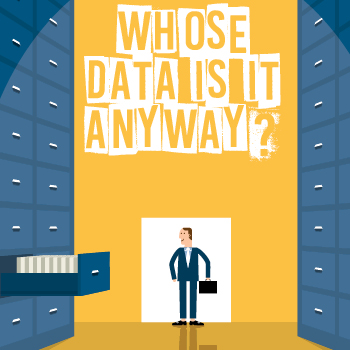Global Blockchain-as-a-Service market expected to grow by 62.73%
The global Blockchain-as-a-Service market size is expected to grow at an impressive CAGR of 62.73% to $52.5 billion by 2026, according to this report.
What is Blockchain-as-a-Service?
Blockchain as a Service (BaaS) is a type of blockchain service offering that allows business customers to use cloud-based solutions to develop, host and adopt their own blockchain applications, smart contracts and other relevant functions on the blockchain.
What are the main global Blockchain-as-a-Service market drivers?
The main drivers of the global Blockchain-as-a-Service market are:
- The increasing awareness of the benefits provided by blockchain technology;
- The need for security in transactions.
The business community is beginning to discover the many benefits that blockchain technology brings to the table. Born into the finance industry, blockchain technology is rapidly expanding outside it.
Looking to engage with your customers in a new and exciting way?
You should consider NFTs.
What is an NFT?
NFT stands for non-fungible tokens. A non-fungible token is a special type of cryptographic token which represents something unique.

NBA games are watched by millions of fans worldwide. In an attempt to provide fans with a new experience, the NBA has taken the idea of physical memorabilia (the standard basketball cards) and upgraded it with the help of blockchain technology. And thus a new kind of collectables emerged: the NBA Top Shot Moments.
The Top Shot Moments are video clips of basketball plays with animations that fans can collect and own.
Is it possible to own a moment in time?
Now it is!
These clips are licensed by the NBA and minted on the blockchain in limited supply. Each Moment has a nonfungible token (NFT), which is unique to that specific Moment. The NFT proves the authenticity of the traded Moment, and without the need to send physical memorabilia, the transfer is very quick.
Fans love the Top Shot Moments: in just a week, sales increased by 100%, jumping to over $200 million.

Gaming is another industry that benefits from blockchain technology.
Alien Worlds is one of the leading blockchain games on the market. Trilium, Alien Worlds’ native currency, has driven users to the game and catapulted it to the number one ranked decentralized game by user base.
The game is currently hosting over 13,000 players and close to 20 million in-game transactions. Blockchain has allowed gamers to capitalize on their hobbies, ushering in a world where people of all skill levels can monetize their hobbies.
On average, Alien Worlds players are making anywhere between $60 to $300 per month. Top Alien Worlds players are pulling in about $35,000 per month.
In finance and banking, blockchain technology provides solutions to a wide range of problems.
For example, blockchain fixes the problem of paper in the bank guarantee process. Paper is slow and expensive and can be easily subject to fraud. Recently, the industry has announced its first standardised digital bank guarantee developed on a blockchain-based platform.
The banking industry had initially rejected blockchain and cryptocurrencies. Today many global banks like JPMorgan and Citi use blockchain technology.
JPMorgan has established a business unit solely focused on blockchain development and developed a peer-to-peer blockchain-based data network called Liink. Liink helps lower transaction costs and reduce the required time needed to resolve banking inquiries from up to a fortnight to a few hours.
What are the key global Blockchain-as-a-Service market challenges?
The challenges faced by the global Blockchain-as-a-Service market are closely related to the challenges faced by blockchain technology irrespective of industry.
Here are blockchain’s main challenges according to this report developed by Deloitte:
1. Lack of understanding of how blockchain works
Businesses need to increase their level of understanding and decide if blockchain is right for them.
2. Collaboration
Businesses need to identify the problems or opportunities their organisations share with others in the sector and collaborate to harness network effects.
3. Culture
Blockchain technology requires a dramatic change in how we view the world. In order to embrace blockchain, the business environment needs to shift away from the traditional ways of doing things. From centralised to decentralized – that’s a big step which some organisations are not prepared to take.
4. Regulation and governance
Blockchain applications are usually working outside existing regulatory structures. Regulators must understand the technology and its impact on the businesses and consumers in their sector.
5. Security and privacy
Because many blockchain applications are linked to known identities, questions are raised about privacy and the security of the data stored and accessible on the shared ledger.
Who are the top leaders in the global Blockchain-as-a-Service market?
List of the top leaders operating in the Blockchain-as-a-Service (BaaS) market are:
Oracle
Oracle Blockchain Platform Cloud Service is a solution that offers ready-to-use code for running smart contracts and maintaining a tamper-evident blockchain.
Microsoft
Azure Blockchain Service provides Microsoft customers with a foundation for blockchain apps in the cloud.
Accenture
Accenture offers blockchain solutions for frictionless business by bringing the right combination of capabilities to their customer’s unique infrastructure, challenges and strategic vision.
Alibaba
Alibaba Cloud BaaS (Blockchain as a Service) is an enterprise-level PaaS (Platform as a Service) based on leading blockchain technologies. This service helps customers build a stable, secure blockchain environment.
IBM
IBM’s blockchain platform has already proven its reliability and has been recognized as an industry leader.
Huawei
Huawei Blockchain Service is a highly-secure and efficient BaaS platform built for enterprise usage and blockchain app development. The platform allows companies and developers to build and deploy blockchain applications much faster and cost-effectively on Huawei Cloud.
Join the Conversation
We’d love to hear what you have to say.
Get in touch with us on our LinkedIn Page, Facebook Page, Twitter or TikTok.
Meet Joe Escobedo, One of Singapore’s Brand Minds
Recognized as one of the “Top 20 Content Marketers” worldwide and awarded the “Most Influential Global Marketing Leader” at the World Marketing Congress, Joe has helped countless organizations and executives transform from relative unknowns to superheroes online. He has also created and led successful digital marketing, branding and PR campaigns for both startups and Fortune 500 firms. He is a contributor for both Forbes and the HuffPost, as well as an award-winning speaker. His articles, interviews and talks have been read or heard by nearly one million people.
What is the significance of Joe Escobedo “The Brand Builder” and what is the story behind it?
“The Brand Builder” is a moniker given to me by my colleagues when we were trying to create ‘superhero’ names for the team.
You worked with companies from U.S., China and Singapore, which market did you like the most and why so?
The safe answer would be Singapore, but my five years in the gauntlet known as China made me what I am today. It taught me humility and the importance of guanxi (relationships).
Name one situation that made you want to quit and change your career.
I want to learn something everyday so there were times in my career where I felt like I wasn’t learning anything new or pushing myself hard enough. It’s during those times that I’ve transitioned to a completely new field or market. Sometimes I’ve failed miserably, but I learned from each experience and have grown from it.
Name one situation that made you want to go forward.
I’m driven when people tell me I can’t do something. I’ve been told that more times than I can count throughout my career. During those times, I think in my head, “hold on a second and watch this!”
What do you think are the most difficult challenges marketeers have to face in Asian markets nowadays?
Taking a long-term view. Too often, global headquarters look to the regional office in Asia and say, “You’re our growth engine now so you should be growing at a double-digit rate.” The problem with that is that it forces marketers to look only at the month ahead, rather than what’s going to rise up and disrupt their industry next year.
Investment matters. If you would invest in one particular business field nowadays. What would that be?
If I were looking for some quick cash, I’d say anything A.I. related. But I generally play the long game so I’d invest in things people always need, like food and toilet paper.
If you could change something about Singapore’s marketing community to improve it in any way what would that be?
I’d encourage the Community to take risks and invest more in digital. An ad plastered over the MRT may look great but what’s the return on your investment?
What made you settle down in Singapore?
The short answer: love. I followed my wife who received a job offer before I did.
Meet Joe Escobedo, The Man behind the suit
Name one good habit that helps you deal with your active life.
Reading to my daughter, because in that moment, I’m not Joe “The Brand Builder.” I’m whichever character I’m reading in the book.
Name one bad habit you can’t quit.
Speed walking. I tend to walk like I’m always 15 minutes late to a meeting.
If you could be anything else but a marketing leader, what would you be?
In another life, I would’ve been a film director. I wrote, directed and edited a sketch comedy movie when I was in college. I loved the experience and think I could’ve been a third-rate Christopher Nolan.
You are recognized as “One of the Most Influential Global Marketing Leaders”. What’s your favorite movie of a global marketing leader?
Don’t know if it’s about a global marketing leader per se, but Game of Thrones. After over a decade as a marketer, I see too many similarities between that show and the marketing world, albeit slightly less violent. For instances, strong alliances with the “right” groups can help you get closer to the corporate Iron Throne.
Tell us your favorite book. What’s the best thing you learned from it?
“How To Win Friends & Influence People,” by Dale Carnegie. I’ve read the book at least 10 times and everytime I ‘learn’ something new. My favorite lesson is about putting yourself in the other’s shoes – thinking about what they would want rather than what you’d want them to do.
Name the most important value you have.
Grit. It’s the only reason I’m still around and kickin’ in the professional world. Because even when I get battered to the ground, I claw my way back up. It’s an invaluable trait for any marketer or entrepreneur.
Name the most important value a leader should have.
Empathy. Every boss wants to make the most profit they can but they can only do so with a strong team behind them. And the only way to build and retain a strong team is to empathize with your staff’s situation. If they get demotivated because a client scolded them, then give them a pep talk. If there are unseen circumstances that caused them to miss a deadline then be understanding to their situation.
If you could compare your journey as an entrepreneur with a song, what song would you choose?
“Highway To Hell.” Just kidding! Instead of a song, my journey can be best described by “The Road Not Taken” by Robert Frost. From my move to China when I was 22, my career has been characterized by these lines: “Two roads diverged in a wood, and I— I took the one less traveled by, and that has made all the difference.”
Tell us the funniest experience you had this year related to your work.
Some of the funniest moments during the past year happen behind-the-scenes. For instance, we use to have “Happy Friday” dance parties at my company. And I’m not one to brag but my rendition of “Hotline Bling” by Drake stole the show.
If you would give our readers one advice from your professional experience, what would that advice be?
To quote the great Conan O’Brien, “If you work really hard, and you’re kind, amazing things will happen.” I truly believe that. Because everyone wants to help the hardworking nice guy or gal.
What is your biggest expectation for the Brand Minds ASIA event?
I’m looking forward to seeing Gary V walk on stage to a deafening cheer, unleash some savage knowledge and drop the mic.
How the UK marketers feel towards the GDPR
Only 11% of marketers already have systems in place to ensure they don’t fall foul of the legislation, as shows data from YouGov and The Chartered Institute of Marketing (CIM). From May 2018, the EU General Data Protection Regulation (GDPR) will come into effect. The reform is one of the most significant in years at 200-pages long and formalizes concepts like the ‘right to be forgotten’, data breach accountability, data portability and more. Huge fines of €20m, or up to 4% of global revenues, have been threatened for non-compliance.
The study into the challenges and opportunities facing those in the industry was based on two separate surveys from YouGov and the CIM. Key findings from the former, which surveyed 225 marketers found that for those in the UK, Brexit (55%) and a recession (47%) were the top concerns for the year ahead. Only 13% of those quizzed said that GDPR would be a significant cause of worry, with just 31% admitting they do not know whether their business has taken steps to ensure they’re compliant.

source: The Chartered Institute of Marketing (CIM)
The CIM’s dataset from 112 members revealed that 70% of marketers are concerned about factors outside of their control, including data breaches, impacting on their brand. The introduction of GDPR will have huge ramifications for marketers who handle personal data and also place demands on businesses to demonstrate informed consent to use consumers’ personal data for marketing purposes – something marketers have previously expressed anxiety over.
Chris Daly, chief executive of the CIM said that while marketers were conscious of impending challenges like Brexit and other digital trends, they have to make sure it doesn’t obscure other issues.
“It is concerning to see that GDPR has not been fully considered, given the wide-reaching impact this will have on business areas which deal with data – marketers’ natural habitat. Given the concerns that emerged from consumers last year over how businesses collect and use customer data, marketers must make sure they are prepared and ready for GDPR sooner rather than later. By staying on the right side of the incoming legislation, marketers are best placed to safeguard not only their business’ reputation, but also its finances.”
The report, “The Challenges and Opportunities facing Marketers in 2017”, features the results of a YouGov survey of 255 marketers, in which more than half (55%) said the UK’s exit from the European Union was among their top concerns.
As a result of the UK’s looming constitutional changes, 54% of marketers said they expected to see an increase in “Brand Britain” messaging, and 19% said they were already looking at how to incorporate this into their own marketing.
Further data from a survey of 112 CIM members, conducted via Survey Monkey, reveals that:
- 70% of marketers are concerned about factors outside of their control (data breach, tax scandals, workers’ rights problems) impacting on the brand
- 95% think marketers need more influence and involvement with the broader business in order to protect brand reputation
Despite the influence social media gives consumers, only 18% of marketers are confident they can handle anything social media throws at them.
One of the key drivers for this is the impact of social media, which gives consumers a platform to shine a light on bad brand behaviour – in fact, 89% of marketers believe the Internet, and social media in particular, gives consumers more power to effect change over brands. However, 21% of marketers feel that while they can manage social media daily, they would struggle in the midst of a Twitter storm. Half of marketers (49%) also say they are not getting the most out of their social media, with 22% attributing this to a lack of investment. While marketers are trying to keep up with changing customer expectations, it would seem some are being held back by the business.
